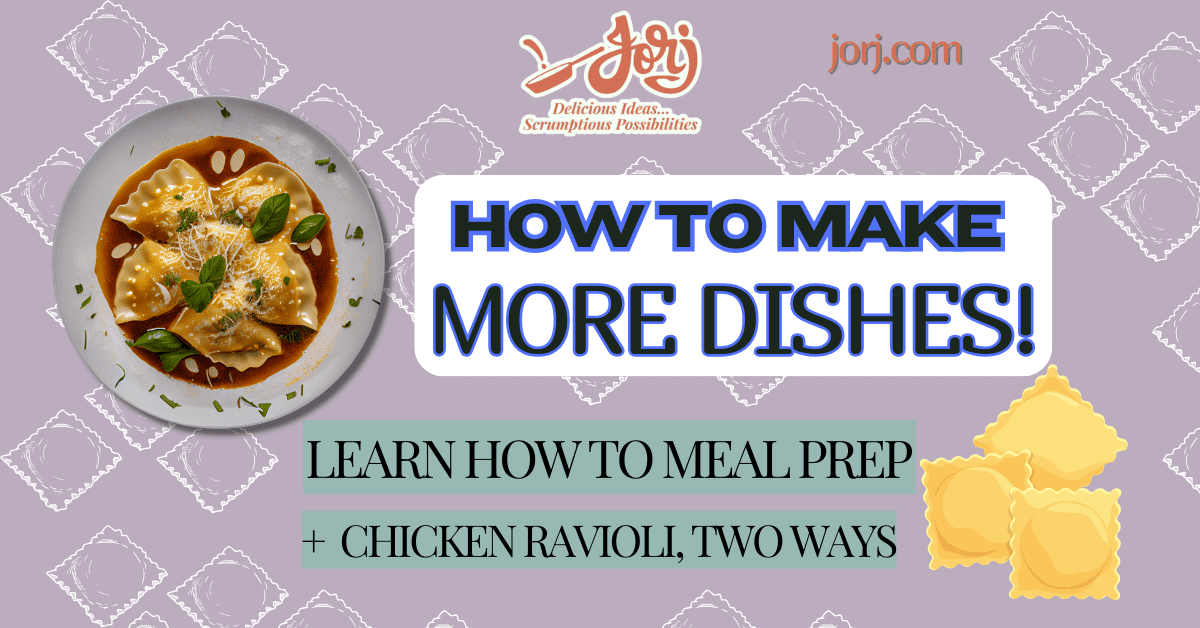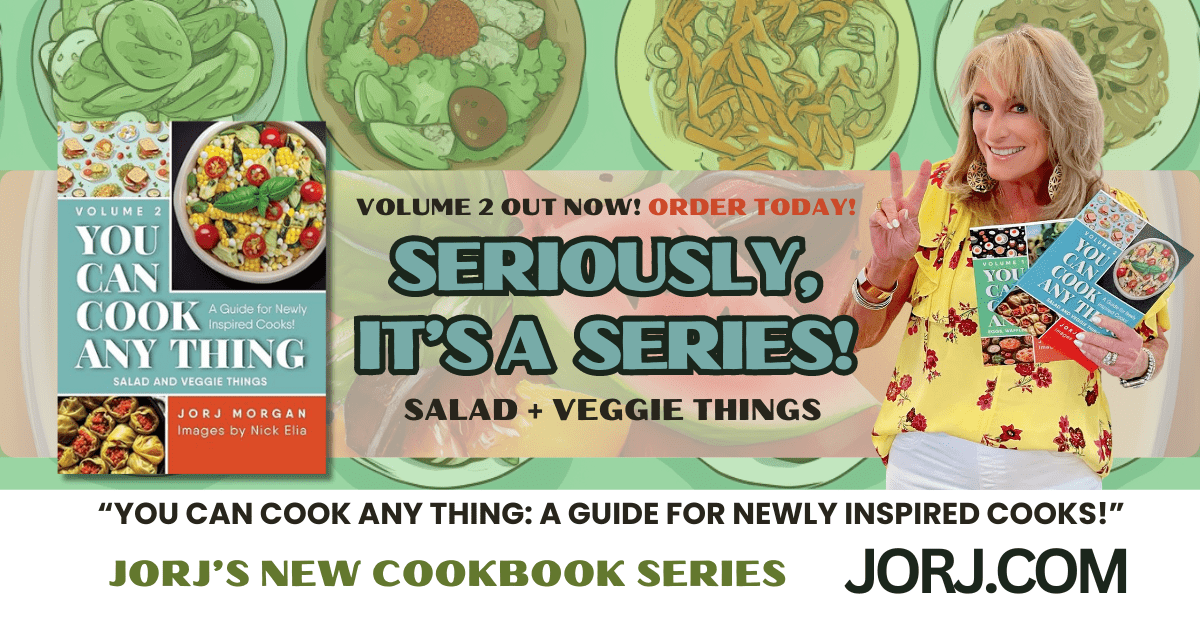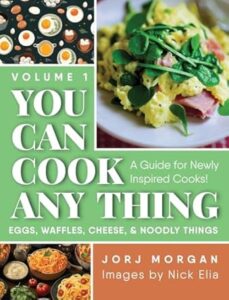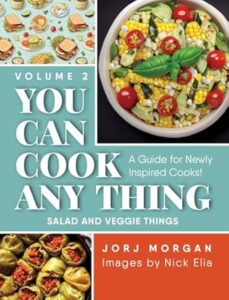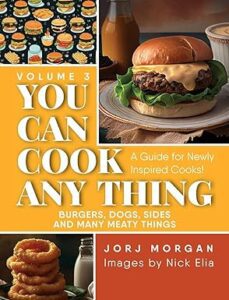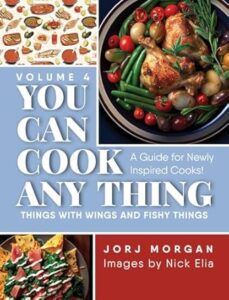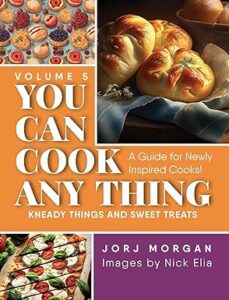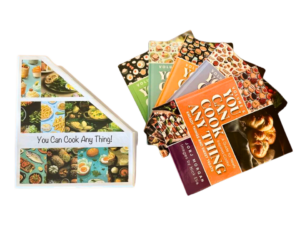
Photo credit: HealthyChangeWithAmy.com
As a cookbook author, it’s my business to understand good nutrition and garner opinions from lots of people, including wellness experts. My cousin, Amy Magner, is a certified health coach trained at the Institute for Integrative Nutrition. We discussed some of the myths and misconceptions about healthy eating, and what home cooks can do with the right information.
Jorj: Thanks for lending me your expertise on cooking more healthfully, Amy. Guess the apple didn’t fall far from the tree. Each in our own way clearly has a passion for studying food!
Amy: Oh, it’s my pleasure to help. I think it’s great you’re writing about the importance of The Family Dinner, and guiding home cooks in how to prepare everything more healthfully and more often. My first and best tip is to do all of your prep work for the coming week on Sunday night. I hope you’ll do a blog soon, documenting a step by step on exactly what this looks like—but it won’t be for me. I’ve been doing Sunday night pre-prep FOREVER!
Jorj: Yes, my readers can look for that in my next blog post! With the right short cuts and insights into more nutritious meal prep, I think many home cooks would stop second guessing themselves and feeling overwhelmed.
Amy: Overwhelmed is a good word for it. So many of us are confused about what “healthy food” really means. One day butter is bad and the next day it’s good. One day eggs are the villains, and the next day they‘re nature’s perfect food. It’s the same with high-carb diets, low-carb diets, and just about any other trend you can name.
Jorj: Stop—I’m getting exhausted. Is there any good news?
Amy: Yes, and it has to do with fat! But not all fats are created equal. Healthy fats are not to be feared – they’re to be embraced. Your body needs dietary fat and cholesterol in order to produce any and all vital hormones. I’ve seen your cookbooks, Jorj and they are chock full of healthy ingredients, like avocados, olives, coconuts, wild salmon, organic eggs, nuts and seeds and their butters….I could go on. But the take away message is clear: avoid processed foods which contain large amounts of unhealthy fats.
Jorj: Is there anything that health coaches like you think we should be eating a lot less of?
Amy: Refined sugar for sure. This is a far greater threat to our health than fat ever was. Sugar contributes to inflammation, heart disease, diabetes and obesity.
Jorj: Sounds ideal…however, my upcoming cookbook is hopefully going to feed a lot of kids, and kids love sugary sweetness. What should their parents do to help them dial back on candy, juices—all that stuff?
Amy: I think the best solution may be the most obvious one: don’t buy packaged desserts and ice creams to begin with or at least scale back. Focus on meals and snacks comprised of satiating foods containing healthy fat, fiber and protein. For a sugar rush, prepare lots of fresh fruits for your kids instead. A study from the Cornell University Food &Brand Lab found that the average person who has a fruit bowl in their house weighs 8 pounds less than someone who doesn’t.
Jorj: That’s pretty cool….now, last question, promise. What is your take on organic produce vs. conventionally grown? Is organic really better?
Amy: The real advantage of organic food is that it doesn’t contain chemical additives, pesticides or drugs. However, any kind of fruits and veggies is better than none at all. As a health coach I can’t stress that enough. Make sure the majority of your food dollar gets spent in the produce aisles!
Jorj: Thank you, Amy and I look forward to getting more of your input as my latest book project moves forward. Eat well, be well!




